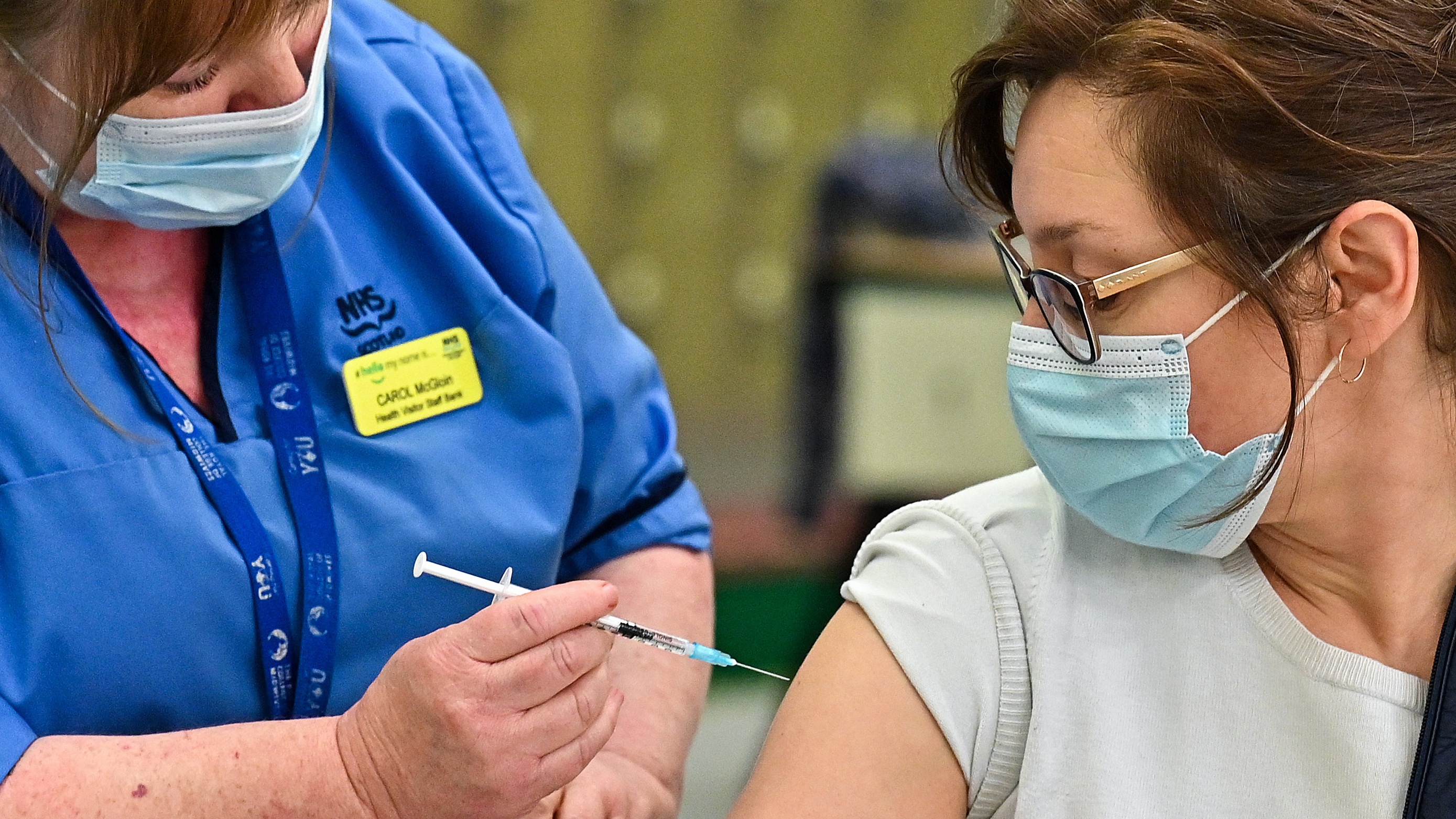Why bone marrow cells may mean coronavirus antibodies ‘last years’
Immune cells can survive well beyond infection or vaccination, new studies show

A free daily email with the biggest news stories of the day – and the best features from TheWeek.com
You are now subscribed
Your newsletter sign-up was successful
Immunity against Covid-19 may last for years in people who have recovered from the virus or received a vaccine, two new studies suggest.
Cells found in bone marrow that are generated during an immune response “may retain a memory of the virus”, The Times reports, meaning they “can produce long-lasting antibodies as a defence against future infections”.
Research published this week in Nature and on BioRxiv, a pre-print online research site, both suggest “these cells strengthen over a period of at least a year”, suggesting people “may not need booster shots… for a considerable period of time”, the paper adds.
The Week
Escape your echo chamber. Get the facts behind the news, plus analysis from multiple perspectives.

Sign up for The Week's Free Newsletters
From our morning news briefing to a weekly Good News Newsletter, get the best of The Week delivered directly to your inbox.
From our morning news briefing to a weekly Good News Newsletter, get the best of The Week delivered directly to your inbox.
The studies “looked at people who had been exposed to the coronavirus about a year earlier” and found “cells that retain a memory of the virus persist in the bone marrow and may churn out antibodies whenever needed”, The New York Times (NYT) says.
“These so-called memory B cells continue to mature and strengthen for at least 12 months” after infection or vaccination, the paper adds.
“It’s normal for antibody levels to go down after acute infection, but they don’t go down to zero; they plateau,” Ali Ellebedy, an assistant professor at Washington University in St Louis who led the Nature study, told The Times.
“These cells have been generated as part of the immune response and they live at this stage for a very long period and continue to secrete antibodies.
A free daily email with the biggest news stories of the day – and the best features from TheWeek.com
“These cells are not dividing. They are quiescent, just sitting in the bone marrow and secreting antibodies. They have been doing that ever since the infection resolved, and they will continue doing that indefinitely.”
Ellebedy’s study monitored antibody levels in 77 patients who tested positive for Covid-19, finding that antibody levels in their bone marrow fell after four months but were still present after 11 months.
The findings will serve to “soothe fears that immunity to the virus is transient”, the NYT says, “as is the case with coronaviruses that cause common colds”. However, the results “may not apply to protection derived from vaccines alone” as “immune memory is likely to be organised differently after immunisation” when compared with natural infection.
Nonetheless, the studies will “give cheer to those concerned that antibodies produced after infection are short lived”, The Times adds, with Ellebedy suggesting that people who recover from the virus and are vaccinated may be “super protected”.
The two studies come after a separate study that found “the Oxford/AstraZeneca Covid-19 vaccine works well as a third booster shot”, the Financial Times reports, strengthening suggestions that the cheap, easily transportable jab could be used to provide an immunity boost.
A third jab was found “to boost participants’ antibodies to the coronavirus’s spike protein in an upcoming study by Oxford university”, the paper adds, despite concerns that “repeated use of the adenovirus vector – an inactivated cold virus – could stop the immune system recognising the virus’s spike protein”.
The study “kills all these arguments that you can’t use adenoviruses more than once”, a person familiar with the findings told the FT, adding that the immune response to a third shot was “unbelievable” and strong enough to “blow through almost any variant”.
-
 Local elections 2026: where are they and who is expected to win?
Local elections 2026: where are they and who is expected to win?The Explainer Labour is braced for heavy losses and U-turn on postponing some council elections hasn’t helped the party’s prospects
-
 6 of the world’s most accessible destinations
6 of the world’s most accessible destinationsThe Week Recommends Experience all of Berlin, Singapore and Sydney
-
 How the FCC’s ‘equal time’ rule works
How the FCC’s ‘equal time’ rule worksIn the Spotlight The law is at the heart of the Colbert-CBS conflict
-
 A Nipah virus outbreak in India has brought back Covid-era surveillance
A Nipah virus outbreak in India has brought back Covid-era surveillanceUnder the radar The disease can spread through animals and humans
-
 Trump HHS slashes advised child vaccinations
Trump HHS slashes advised child vaccinationsSpeed Read In a widely condemned move, the CDC will now recommend that children get vaccinated against 11 communicable diseases, not 17
-
 A fentanyl vaccine may be on the horizon
A fentanyl vaccine may be on the horizonUnder the radar Taking a serious jab at the opioid epidemic
-
 Health: Will Kennedy dismantle U.S. immunization policy?
Health: Will Kennedy dismantle U.S. immunization policy?Feature ‘America’s vaccine playbook is being rewritten by people who don’t believe in them’
-
 How dangerous is the ‘K’ strain super-flu?
How dangerous is the ‘K’ strain super-flu?The Explainer Surge in cases of new variant H3N2 flu in UK and around the world
-
 Vaccine critic quietly named CDC’s No. 2 official
Vaccine critic quietly named CDC’s No. 2 officialSpeed Read Dr. Ralph Abraham joins another prominent vaccine critic, HHS Secretary Robert F. Kennedy Jr.
-
 This flu season could be worse than usual
This flu season could be worse than usualIn the spotlight A new subvariant is infecting several countries
-
 Covid-19 mRNA vaccines could help fight cancer
Covid-19 mRNA vaccines could help fight cancerUnder the radar They boost the immune system